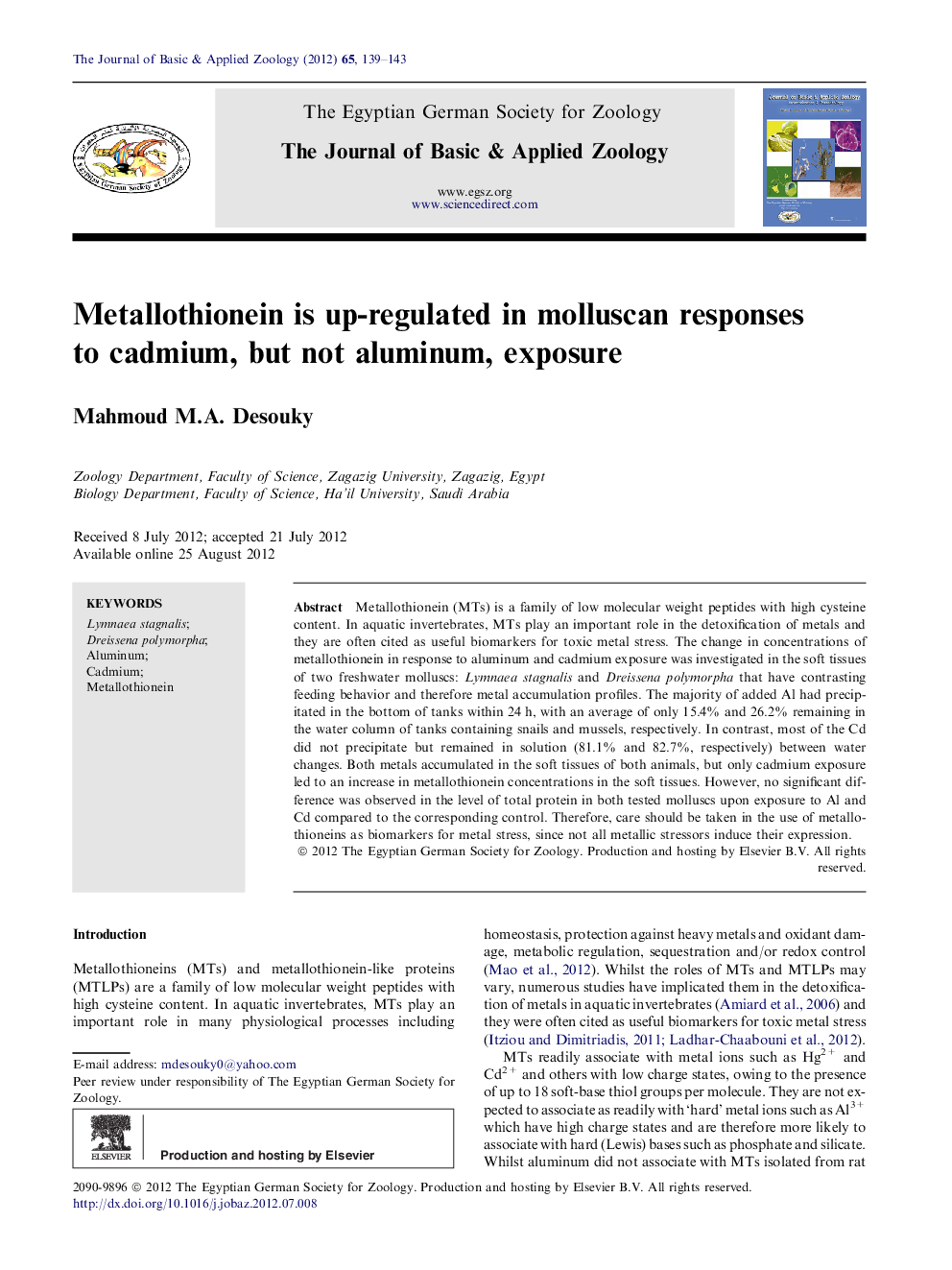| Article ID | Journal | Published Year | Pages | File Type |
|---|---|---|---|---|
| 4493576 | The Journal of Basic & Applied Zoology | 2012 | 5 Pages |
Metallothionein (MTs) is a family of low molecular weight peptides with high cysteine content. In aquatic invertebrates, MTs play an important role in the detoxification of metals and they are often cited as useful biomarkers for toxic metal stress. The change in concentrations of metallothionein in response to aluminum and cadmium exposure was investigated in the soft tissues of two freshwater molluscs: Lymnaea stagnalis and Dreissena polymorpha that have contrasting feeding behavior and therefore metal accumulation profiles. The majority of added Al had precipitated in the bottom of tanks within 24 h, with an average of only 15.4% and 26.2% remaining in the water column of tanks containing snails and mussels, respectively. In contrast, most of the Cd did not precipitate but remained in solution (81.1% and 82.7%, respectively) between water changes. Both metals accumulated in the soft tissues of both animals, but only cadmium exposure led to an increase in metallothionein concentrations in the soft tissues. However, no significant difference was observed in the level of total protein in both tested molluscs upon exposure to Al and Cd compared to the corresponding control. Therefore, care should be taken in the use of metallothioneins as biomarkers for metal stress, since not all metallic stressors induce their expression.
